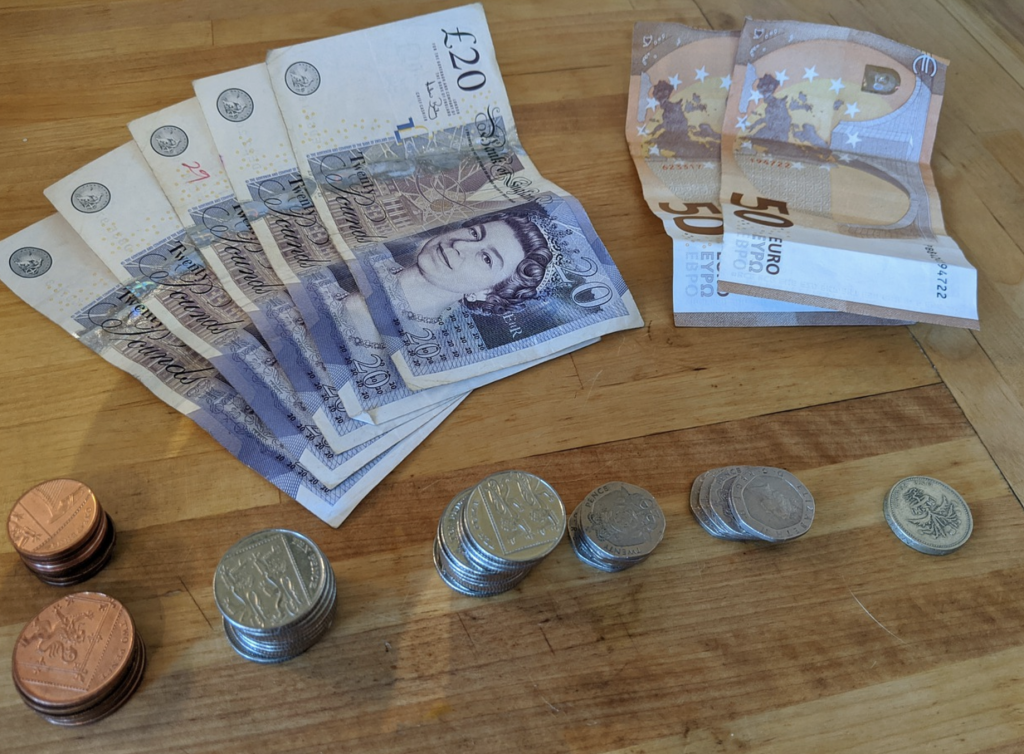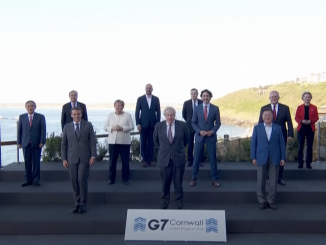
The British government is under increasing pressure to finally fulfill its promise to protect access to cash. In early 2020, the UK Treasury said it would introduce legislation protecting the needs of cash users, but the pandemic took precedence. As an alarming number of bank branches and ATMs closed in England this past year, consumer watchdog groups such as Which? have put the right to use cashback in the spotlight.
John Glen, Economic Secretary to the Treasury and City Minister, said the government would address the issue this summer in order to ensure access to cash for vulnerable people. The government also said that the Financial Conduct Authority (FCA) would step in if banks and ATMs close in areas where there is no other option for withdrawing cash. Martin Kearsley, the Post Office’s Banking Director urged, “Government must take action now, to bring forward legislation to protect the future of cash, monitor its effective support through regulatory oversight, and prevent millions from being cut off.”
Cash is a public good that needs government intervention, as it does with other public goods and public infrastructure, to ensure universal access to it. Since this only method of payment is not linked to private firms or transaction fees, cash is a safeguard of personal freedom of choice.
Defining Public Goods
Public goods are commonly defined by two main characteristics. The first is that a public good is non-excludable, meaning that people cannot be excluded from using or consuming the good. Requiring a fee to use a good would make it excludable because not everyone could pay. The second characteristic of public goods is that they are non-rivalrous. It implies that one person using or consuming a good cannot prohibit another person from using the same good; two or more people can use the same good concurrently.
Cash is a Public Good
As Professors Edoardo Beretta and Doris Neuberger explain in their working paper Institutional Hostility to Cash and COVID-19: “money […] constitutes a pure public good: money creates trust between people who do not know each other. The state establishes and supports the trust in legal tender and the official currency, making this trust a “pure public good” – non-excludable and non-rivalrous.”
Cash is the only payment form that is non-excludable because it is the only one that does not require a fee. Online transactions and credit card payments are facilitated by private third parties that charge fees for their services, thus making them excludable to some. However, anyone can use cash as a transfer of value and no one can be excluded from paying with it (in principle, at least).
Cash is also non-rivalrous, since paying with cash does not preclude the person behind someone in line from paying with cash as well. While two people cannot use the same banknote or coin to purchase items simultaneously, everyone can use cash as a means of payment at the same time.
Other Public Benefits of Cash
In addition to being non-excludable and non-rivalrous, cash has other benefits, or positive externalities, for the public that do not fit into the narrow economic definition of public goods. Bill Maurer, Dean of the School of Social Sciences at UC Irvine, observes, “Cash is profoundly democratic. It can be given by anyone, accepted by anyone, settled and cleared instantaneously.” For many individuals worldwide, cash is the primary accessible payment method and is therefore essential for their survival.
But physical cash is also a public infrastructure that creates a system of checks and balances between central banks, governments, financial institutions, and consumers. The existence of cash means the State must implement responsible monetary policies and good governance. Cash creates competition that keeps financial institutions from charging exorbitant fees for their services and acts as a safeguard against negative interest rates. Cash also protects people’s civil liberties as the only form of payment that is completely private and anonymous.
Governments Protecting Cash
In her white paper Virtually Irreplaceable: Cash as Public Infrastructure, Professor Ursula Dalinghaus states, “Cash’s status as legal tender ensures it is universally accepted, equally accessible, and free to use for consumers, making it an important public good and public infrastructure.” But, government intervention and regulations are needed to protect universal access to, and the ability to use cash. It is even more critical in present era, when financial institutions and certain politicians are campaigning against cash in order to promote cashless payments and the transaction fees that come with them.
The British government is considering regulations similar to what the Swedish Riksdag adopted in November 2019. Sweden is one of the world’s most cashless economies, but the government had to intervene when it realized that many of its citizens were being financially and socially excluded. The law requires large banks to provide cash services across the country. It is designed to protect Sweden’s vulnerable populations including those living in rural areas, people without Internet access or a mobile phone, the elderly, and migrants.
This law follows a recent opinion issued by Advocate General at the European Court of Justice, Giovanni Pitruzella, in which he argues: “For these vulnerable individuals, cash is the only form of accessible money and thus the only means of exercising their fundamental rights linked to the use of money.” Pitruzella reaffirmed the status of coins and banknotes as legal tender in the EU and “the principle of acceptance of cash by the creditor for the settlement of the monetary debt.”
In the United States, there is currently no federal law requiring businesses to accept cash. With an estimated quarter to a third of Americans considered as unbanked (no bank account) or underbanked (no credit or debit card or do not use them because of fees), some cities and states have taken matters into their own hands. Cashless Economy notes that left-leaning cities like Philadelphia, San Francisco, and New York have all passed laws to protect the use of cash. In the state of Massachusetts, businesses have been legally required to accept cash since 1978. Colorado State Senators Alex Valdez and Robert Rodriguez also recently introduced a bill to the state legislature that would require companies in Colorado to accept cash payments.
Cashless Cannot Replace Cash as a Public Good
Digital payments have increased exponentially over the past few decades, but cash is still a fundamental public good. The debate over cash versus cashless does not have to be a “one or the other” argument. People choose (when they have the option) what payment method they want to use depending on the situation or what they are purchasing. But this decision should be an individual’s choice and not imposed by a third party.
“Because of its physical and distributed form across societies, cash remains vital in a digital world – a critical public good and public infrastructure in local, national, and global monetary systems,” Professor Dalinghaus concluded. With private companies using incentives and punishments to push businesses and individuals towards cashless transactions, government intervention is necessary to ensure universal access and acceptance of cash.
![]()




Be the first to comment